180 anniversary of the birth of the great surgeon Nikolai Vasilievich Sklifosovsky
Nikolai Vasilievich Sklifosovsky was born on March 25 (April 6 in a new style) 1836 of the year. He was born on a small farm near the Moldovan town of Dubossary, which at that time belonged to the Tiraspol district of the Kherson province. After the death of Nikolai Sklifosovsky and before the October Revolution, this farm was called Sklifosovsky Farm. The surname of his paternal grandfather was Sclifos, the surname was changed by the father of the future famous physician who was anointed by the Russian Orthodox Church in Dubossary, where his 9 son Nikolai Sklifosovsky was later baptized. His father, Vasily Sklifosovsky, was a petty official - he worked as a clerk in a local quarantine office, and his mother was engaged in bringing up a whole horde of young children, all in the family were 12 children.
In such conditions, the childhood of the future luminaries of Russian medicine could hardly be called carefree and simple. On the contrary, the great surgeon went through difficult life trials, his childhood was difficult and hungry. Father’s small salary was barely enough to simply feed a large family. After the death of his wife during the period of rampant cholera epidemic in Dubossary, Vasily Sklifosovsky was forced to send his younger children to the Odessa orphanage, and he soon fell ill himself, and died several years later. At the same time, Nikolay Sklifosovsky, who unexpectedly became an “orphan” while still alive, did not disappear in this life. The boy had a very great ability to learn, he was drawn to knowledge, which allowed him to graduate from the 2 Odessa gymnasium with a silver medal. Perhaps the choice of life and profession influenced the fate of his father and mother, Sklifosovsky wanted to become a doctor and save human lives.
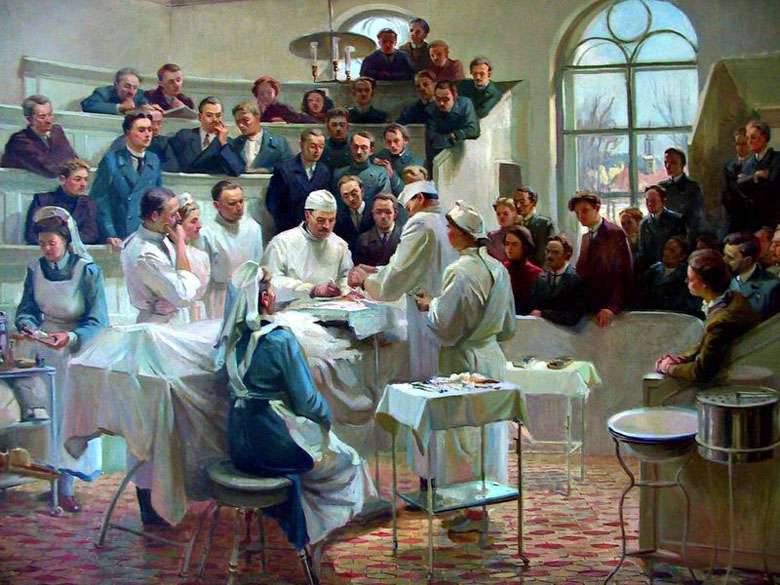
An excellent certificate and a silver medal allowed him to enter the medical faculty of Moscow University. He studied at public expense, free education was available to all social groups, if they, of course, sought to obtain it. At university, he became a student of the outstanding surgeon F. I. Inozemtsev, who was Pirogov's eternal rival and even “robbed” of the great surgeon’s hope for the Moscow University’s department of surgery. In material terms, little has changed in the life of Nikolai Sklifosovsky in Moscow, he no longer had parents, and no inheritance either. All his student years he lived on a rather meager scholarship, which the Odessa order quite often sent him late.
He graduated from the University in 1859, at the age of 23 years, after which he was sent from Moscow to his native Odessa, where he got a job as an intern at the surgical department of the Odessa City Hospital. It is here that the surgeon gains independence, professional and material independence. The Odessa period of his life is very important in his biography. It was during 10 years spent in this city that he was able to gain the necessary experience for all his follow-up activities. For the sake of this surgical practice, he even refused the place of the head physician of the hospital; regalia to him at that time were less important. The years of hard medical work and constant scientific research in the field of medicine have borne fruit. In the 1863 year in Kharkov, only at the 27 age, Nikolai Sklifosovsky successfully defended his doctoral dissertation on the topic “About the circulating blood tumor”. The young doctor was engaged in little studied at that time gynecological diseases.
In 1866, Sklifosovsky is sent on a two-year overseas business trip. In 1866 and 1867, he managed to work in Germany at the Pathoanatomical Institute of Professor Virchow, as well as the surgical clinic of Professor Langenbek. In addition, he managed to work in France at the Clomart Institute of Anatomy and at the Nelaton Clinic, as well as in Scotland at Simpson, who in 1839, became a professor of obstetrics at Edinburgh University. This trip gave a lot to the young surgeon. Moreover, during her time he even managed to get acquainted with field surgery. With the permission of the Russian government, he took part in the Austro-Prussian War, working actively in the hospital and at the dressing stations, and even became a member of the Battle of Sadow (the battle of Königgrice). For participation in this battle, he was awarded an iron cross.
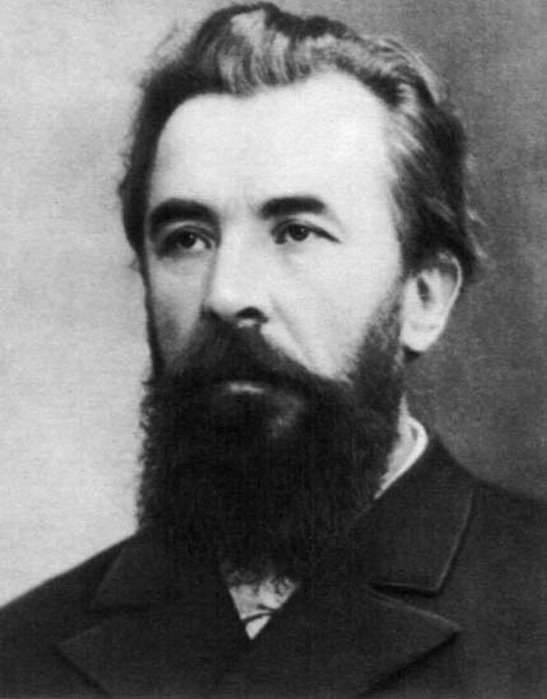
Gradually the name of Sklifosovsky becomes known in the medical world not only in Russia, but also abroad. In the 1870 year, on the recommendation of another outstanding Russian surgeon Pirogov Sklifosovsky receives an invitation to head the department of surgery at Kiev University. However, in Kiev, he did not stay long: he soon went to the war again, this time to the theater of the Franco-Prussian war. Upon returning to Russia in 1871, his name is to work at the Department of Surgical Pathology at the Medical-Surgical Academy in St. Petersburg, where Sklifosovsky initially taught surgical pathology and was in charge of the surgical department at a clinical military hospital, and starting from 1878, he accepts a surgical baronet in this department Villier At the same time, having published a number of his scientific works, including the “Brief Guide to Surgery”, which was one of the first in our country, he became a very popular professor-surgeon.
At the same time, in 1876, Nikolai Sklifosovsky was again at war, this time he was in Montenegro, where he was a consultant for surgery at the Red Cross. The Russo-Turkish War, which broke out in 1877, calls on the surgeon to serve in the Russian army. He takes part in the dressing of the wounded during the crossing over the Danube, works as a surgeon during the battles of Plevna and Shipka. So one of the surgeon's trips to the fort of St. Nicholas almost cost him his life. For the sake of work in the war, he could forget about everything, and if the circumstances required it, Sklifosovsky could conduct operations for several days in a row, without being distracted by food or sleep. During the counterblows of Suleiman Pasha’s army, the surgeon conducted operations for four days in a row without sleeping and resting under the fire of the Turkish troops. Reports tell us that at that time about 10 thousands of wounded people passed through Sklifosovsky's hospitals. The doctor and sisters, among whom was the surgeon's wife, Sophia Alexandrovna, supported Nikolai Vasilyevich's strength by the fact that occasionally between separate operations they poured several sips of wine into his mouth. Medical and surgical practice during the war gave Nikolay Sklifosovsky enormous material, which he later used in publications of military health and military medicine: “Transportation of the wounded in the war” (1877 year) and “Our hospital in the war”, in which, among other things, he noted the progress of sanitation, which occurred in the 1877-1878 war.
In 1880, Nikolai Vasilyevich was elected to the department of faculty surgery of the clinic of Moscow University. The professor was elected dean of the medical faculty of Moscow University, where he successfully worked from 1880 to 1893 a year. In total, Sklifosovsky spent 14 years in Moscow; this period of his research and teaching activities is considered the most productive. At the same time, under no circumstances did Nikolai Sklifosovsky change his own gentlemen's rules of behavior and communication, no one saw him lost his temper or quick-tempered. Meanwhile, Nikolai Vasilievich was an enthusiastic and emotional person.
In 1893, he returned to St. Petersburg, as he was appointed director of the Clinical Institute for Advanced Medical Studies, he also managed one of the surgical departments of this institute. He worked here until 1902, teaching practical surgery to physicians who came to St. Petersburg from all over Russia. In 1902, he retired due to illness and some time later went to his estate, located in the Poltava province.
In Sklifosovsky very strong was the desire for public service. Examples of such a ministry include the creation of a clinical campus on the Maiden Field on his own initiative. Taking advantage of his high prestige and position in Moscow, he successfully collected quite large donations among Moscow merchants to build this small town. Here he creates his own school, this school and its many students will make a very large contribution to the development of all Russian surgery.
In their time, N. I. Pirogov, K. K. Reier, and E. Bergman were pioneers of antiseptics in Russia, but they did not manage to make antiseptics available to all Russian medicine. As in many other European countries, the introduction of antiseptics in our country also met with serious resistance. And only Nikolai Vasilievich, thanks to his authority, managed to break this resistance. At first he managed to do it in Moscow, and then in the whole country. At the first Pirogov congress, which was held in 1885, Sklifosovsky delivered a brilliant speech, which was aimed at protecting antiseptics.
Sklifosovsky's career and professional path, one might say, were cloudless, but in his personal and family life he had a lot of grief. You can even say that the great surgeon who saved a huge number of human lives, pursued death. Already at a young age, he experienced real grief - at the age of 24, his young wife, Lisa, passed away, leaving the spouse alone with three young children. Later, he marries their governess, Sophia Alexandrovna, who will give birth to four more children. Life with her was good in all respects, Sophia did not divide children into friends and foes, skillfully led the household, always helped her husband. In the XIX century, their house was seen as guests of such famous people as Chekhov, Tchaikovsky, Tolstoy, and Vereshchagin. However, this happy large family was waiting for a series of terrible ordeals. One son of Sklifosovsky - Boris, died in infancy, the other - Konstantin, died at the age of 17 due to kidney tuberculosis. After that creepy story happened to the eldest son of the famous surgeon Vladimir.
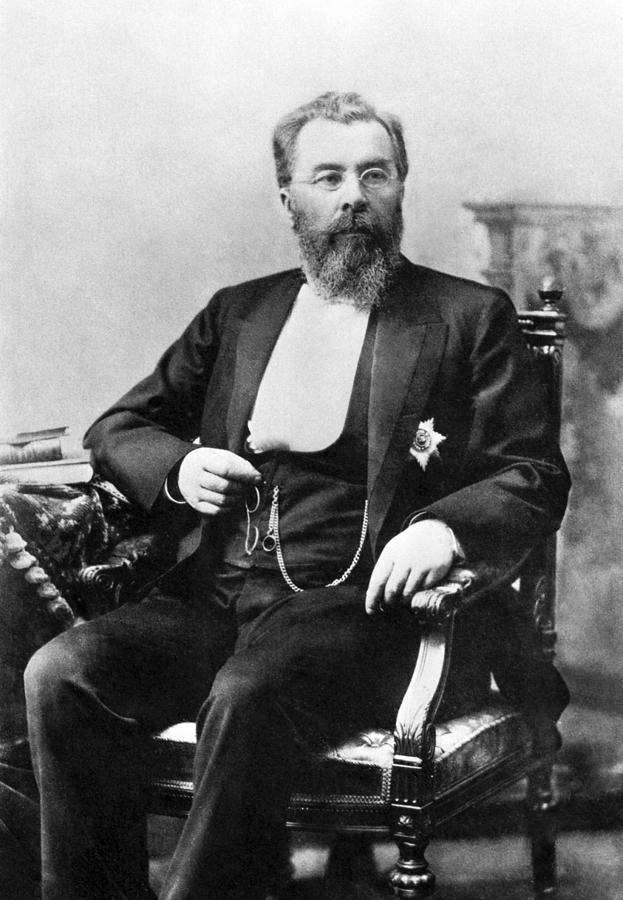
At that time he studied at St. Petersburg University and showed great promise. To his misfortune, the student became interested in politics and naively joined a secret terrorist organization, in which he was given the assignment to kill the governor of Poltava. It is worth noting that the Sklifosovsky estate was located just near Poltava, here the family spent a lot of time, and the governor of Poltava was a family friend. That is why the task to kill a high-ranking official was given to Vladimir. He arrived in his native estate in a depressed state, since he could not kill a long-time acquaintance of his family, however, he also did not dare to confess to his new comrades of his "cowardice". As a result, he commits suicide by shooting himself in his own room.
If Nikolai Sklifosovsky could still be reconciled with the deaths of the sons of Boris and Konstantin, since they were natural, then the tragedy with Vladimir in the family estate literally crippled the famous surgeon. He decides to leave work and settles in his Poltava estate finally. Soon, in 1904, he dies of a stroke at the age of 68. However, maybe it was even better for him, since Nikolai Vasilyevich would not know what fate was prepared for the remaining members of his family. His other son, Nikolai, was killed during the Russian-Japanese war, the other, Alexander, went missing during the civil war. And in 1918, the wife and daughter of the great Russian surgeon, scientist and humanist were brutally murdered by the Bolsheviks in his estate Yakovtsy. They were killed in the mess of the civil war, despite the fact that they had an official paper from Lenin in their hands, which forbade touching the family of a famous doctor. At the same time, Sklifosovsky’s estate was literally turned into a pigsty for many years - an artificial insemination station was located here, and the house of the famous surgeon itself was devastated and looted.
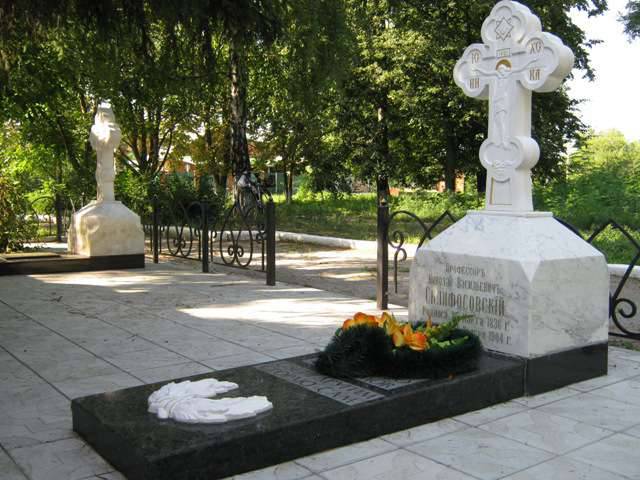
Interesting facts about biography
Two different fainting
Curiously, in the future a well-known surgeon, and for the time being just a student Nikolai Sklifosovsky fainted at the sight of blood at the first operation he saw. Sklifosovsky has always been distinguished by impressionability. At the same time, he transferred the second such occupation calmly, and by the time he completed his studies he showed such outstanding results that he was one of the few students who were offered to pass exams for a doctoral degree. The second known fainting of Sklifosovsky happened for the exact opposite reason. After classes in the operating room and wards, Nikolai liked to go in to study operative surgery and topographic anatomy. At the same time, the sectional equipment where he worked was poor, and there was no ventilation at all. However, the student literally longed to study anatomy and sometimes lasted until the state of complete exhaustion. Once he was found lying near an unconscious corpse in a state of deep fainting.
Modesty
Earlier we already talked about the fact that Sklifosovsky refused from the post of chief physician, preferring to engage more in practice and in his own development. After 25 years after that, the already famous surgeon will refuse to celebrate the anniversary of his own medical practice - no celebrations, no celebrations. True, the hundreds of patients rescued by him and the entire surgical world still threw him with congratulatory telegrams and letters, which were around 400.
Doctor of all wars of the XIX century
It is no coincidence that Sklifosovsky is sometimes called the doctor of all wars of the 19th century. He really was an active surgeon in almost all major European conflicts of the second half of the XIX century. He took part in the Austro-Prussian War 1866 of the Year, in which he gained invaluable experience. In 1870, he participated in the Franco-Prussian war, in 1876, in the Slavic-Turkish, in 1877, in the Russian-Turkish, to which the professor volunteered. His participation in all these military conflicts makes it possible to attribute Nikolay Sklifosovsky to one of the pioneers of military field surgery. Thanks to his scientific work, in our country they began to use antiseptic and disinfect surgical instruments. This saved millions of sick people from blood poisoning and other possible postoperative complications. One of the first surgeon began to use hot disinfection tools, he also invented a surgical joint of the joints, which today is known as the “Sklifosovsky castle” or “Russian castle”.
Female doctors
This is today a female doctor - the most common phenomenon that does not cause anyone surprise. However, in the XIX century, a female doctor was an exceptional phenomenon. In those years, none of the reputable doctors did not even try to raise the question of whether a woman can become a professional doctor and even more so a real surgeon. However, Nikolai Sklifosovsky looked at it completely differently. Already during the Russian-Turkish war of 1877, he, in addition to helping wounded soldiers, was in charge of leading a group of women doctors who chose surgery for their life. For that time it was a real breakthrough.
Information sources:
http://www.tonnel.ru/?l=gzl&op=bio&uid=415
http://www.chronoton.ru/past/bio/nikolay-sklifosovskiy
http://russian7.ru/post/7-interesnyx-faktov-o-sklifosovskom/full
Open source materials
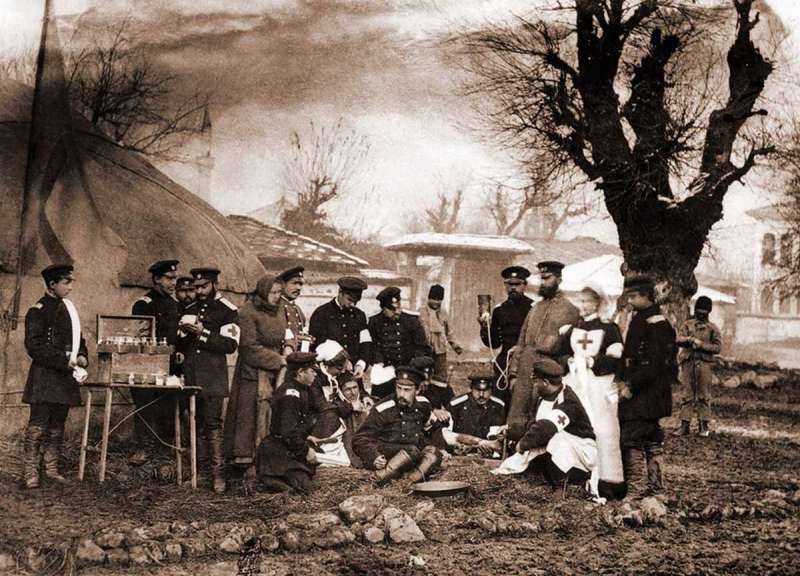
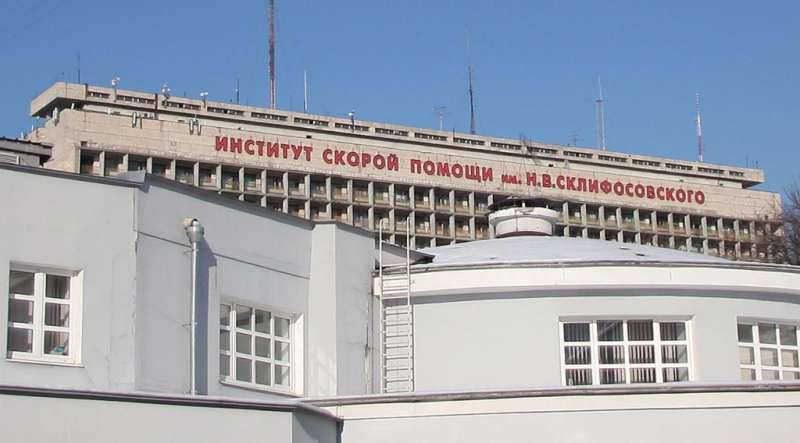
Information